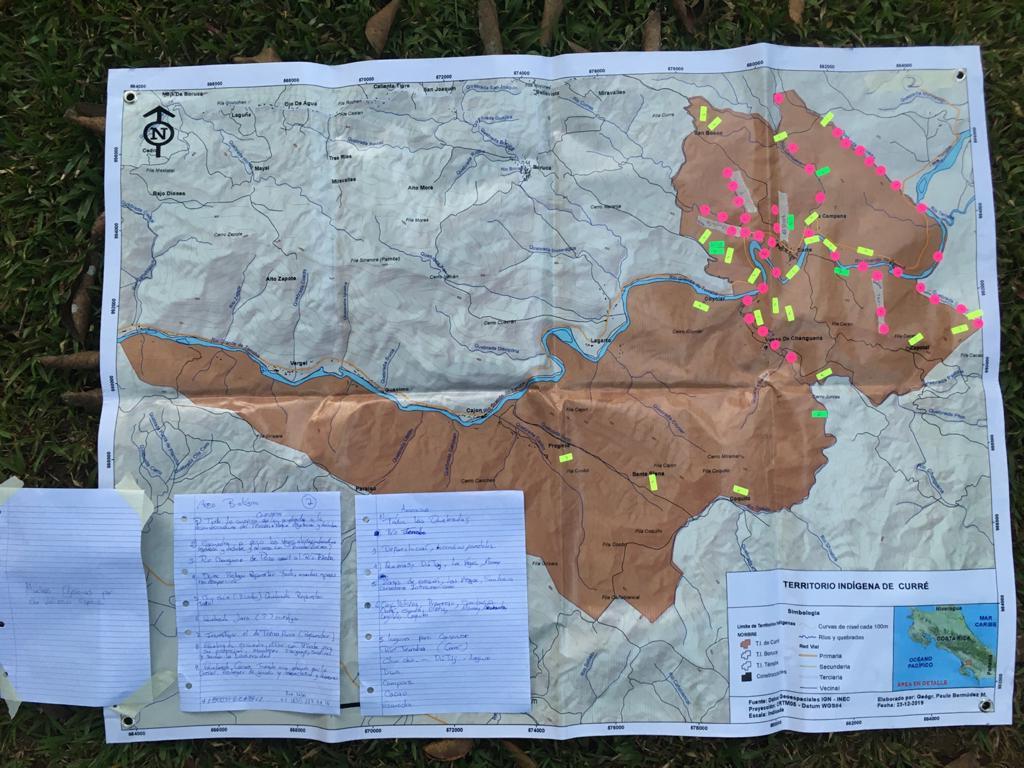


Community-managed freshwater protected areas known as Fish Conservation Zones (FCZs) have become a popular strategy for fisheries conservation and management in Southeast Asia. From 2020–2022, FISHBIO was awarded a grant from the Critical Ecosystem Partnership Fund to explore replicating the FCZ model in Costa Rica, a country that is often lauded for its environmental progress, but where little attention has been paid to freshwater environments. This project drew on FISHBIO’s work since 2014 to establish Fish Conservation Zones with local communities in Lao PDR, and also sought to leverage Costa Rican experience in the field of ecotourism to benefit communities in Lao PDR. While the project was originally envisioned as a series of international exchange visits, the emergence of the COVID-19 pandemic quickly necessitated a pivot to a remote approach.

This project involved extensive coordination and discussion with various government, NGO, and community stakeholders in Costa Rica to introduce the concept of FCZs and explore the potential legal pathways for creating community-managed freshwater protected areas in the country. Connections were made with the indigenous territory of Rey Curré, located in the Térraba River watershed on the southern Pacific slope of Costa Rica. The indigenous people of Rey Curré agreed to participate in the project, and numerous meetings were held to discuss current and historical fisheries conditions and threats, as well as identify key areas for protection. A baseline biological study led by Jorge Picado, a Costa Rican biologist from ASANA, with participation from the community helped document the fishes and crustaceans in the area. A baseline socioeconomic study was also carried out by anthropologist Jorge Cole with participation of the community. The local and the scientific knowledge of all these sources were combined to provide management recommendations for the future protected area.
In an official meeting on December 29, 2021, more than 140 assembly members of Rey Curré’s local government (ADI) reached an agreement to pursue the establishment of a Responsible Fishing Area (Area de Pesca Responsible, APR) in the territory. An APR is a type of protected area developed by the Costa Rican fisheries administration (INCOPESCA) whose objective is to involve local organizations in the management of small-scale fisheries. This is the most similar model in Costa Rica to an FCZ. Currently, APRs only exist in the marine environment and, if implemented, this project will represent the first creation of an APR in freshwaters. The project will culminate in presenting a proposal to INCOPESCA on behalf of Rey Curre’s local government and the creation of a five-year conservation strategy, along with the draft rules and boundaries of the APR.

In Laos, virtual meetings were held with ecotourism consultants from Costa Rica to explore ways of integrating tourism and environmental awareness raising into FCZ management. Support was provided to three villages in Laos to enhance their FCZs as tourist destinations. FISHBIO also produced numerous communication products as part of this project, including Spanish translations of a video about FCZ establishment and portions of an FCZ establishment guidebook that FISHBIO previously developed for CEPF. We also produced educational posters about the fishes and shrimps of the Térraba River. Despite the logistical challenges of a global pandemic, this project facilitated valuable international knowledge exchange and opened new doors for freshwater fish conservation in Central America.



